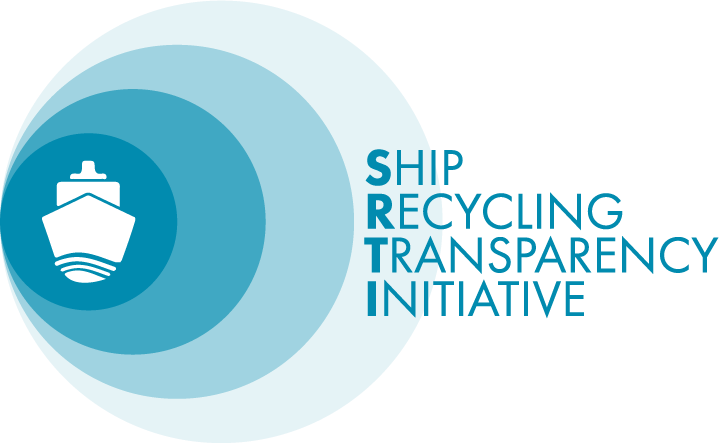Wallenius Wilhelmsen
- 1. Company particulars and overall approach
- 2. Ship recycling policy and standards
- 3. Policy for selling owned vessels for further trading
- 4. Ship recycling contract
- 5. Inventory of Hazardous Materials (IHM) and Ship Recycling Documentation
- 6. Implementation of the ship recycling policy and standard
- 7. Other comments

Wallenius Wilhelmsen
Wallenius Wilhelmsen Ocean, EUKOR Car Carriers
Oslo, Norway
https://www.walleniuswilhelmsen.com
130
78
The Wallenius Wilhelmsen group is a market leader in RoRo shipping and vehicle logistics, transporting cars, trucks, rolling equipment and breakbulk around the world.
Wallenius Wilhelmsen responsibly recycles vessels at craned berths and landing facilities which we pre-vet to ensure worker welfare and safety is front of mind, as well as to make certain materials are recycled and waste treated in an appropriate and traceable manner. We have a representative on site to supervise the entire process, with the authority to stop work for safety, welfare or environmental reasons. For full details please refer to our Vessel Recycling Policy, as featured on the sustainability section of our website.
Yes
Yes
https://www.walleniuswilhelmsen.com
2000
51-75%
Yes
Yes
25-50%
Yes
The policy is very specific on recycling methods, but not on location. Meeting all the requirements of the policy is a basic requirement for facilities to be considered. Final selection of the facility for a recycling project includes consideration of the findings for the pre-vetting process, operational factors (e.g. location of the facility vis-a-vis the location of the vessel at a given time) and commercial competitiveness.
Yes
The process for selecting a recycling facility is described in our Vessel Recycling Policy.
Yes
Yes
2000
Yes
Wallenius Wilhelmsen owns vessels from cradle to grave. The only sale of vessels that occurs is between the companies within the group, all of which are covered to our Vessel Recycling Policy
No
Always
As detailed in our Vessel Recycling Policy, requirements for recycling of long-term chartered vessels are dependent on the age of the vessel when it is redelivered. All future long-term charters of vessels that would be within five years of their end-of-life at the point of redelivery will feature a requirement for the vessel to be recycled in accordance with our Vessel Recycling Policy. All efforts are being made with tonnage providers to ensure existing long-term charter vessels are responsibly recycled if redelivered within 2 years of their end-of-life. This includes clearly and actively conveying the group's expectations on responsible recycling to our tonnage providers.
Always
The Wallenius Wilhelmsen group does not enter medium-term (2-5yr) charter agreements for vessels that are approaching end-of-life. Requirements for responsible vessel recycling are not included in the medium-term charters of young vessels, however the group's expectations on responsible recycling are being clearly and actively conveyed to our tonnage providers.
Never
Always
The Wallenius Wilhelmsen group has developed its own standard vessel recycling contract to suit its specific vessel recycling approach and requirements.
Always
The facility and, if required, the exact berth at the facility are specified.
Yes
All the points mentioned are included among the standard provisions or the recycling contracts for our vessels.
Yes
Always
Always
Yes
Each vessel has a complete, accurate and up-to-date IHM when recycled. Reference is made to the IHM during the pre-vetting of facilities to assess their ability to control, handle, store and dispose of the vessel's hazardous wastes in a safe, legal and appropriate manner.
Never
Always
Please note the details of the pre-vetting approach in our Vessel Recycling Policy. The pre-vetting is done to confirm certification and or capabilities and compliance with all applicable regulation, as well as our own requirements
Always
In our experience, anti-corruption is a material consideration during pre-vetting phase, rather than the fulfilment phase.
Always
Sometimes
Explicit requirements for the faciilties to facilitate the raising of grievences without retribution have not been made previously, however they are encouraged and supported. Whether such a mechanism would be effective in practice can depend on location and or prevailing cultural norms. Having representatives with local language skills and continuously on the site is conducive to understanding and following worker sentiment, as is the monitoring of health and safety conditions, and the supervision of working hours.
Sometimes
Wallenius Wilhelmsen's approach to this issue is calibrated on a case by case basis. Whether association and collective bargaining is legal in the country is taken into consideration as is the need to require a facility to allow it. The company does not oppose worker association or collective bargaining.
The origins of Wallenius Wilhelmsen as it is today go back to the establishment of Wallenius Wilhelmsen Logistics in 1999. The overall approach to vessel recycling has been consistent over that time, although some requirements have been fine tuned over the years

